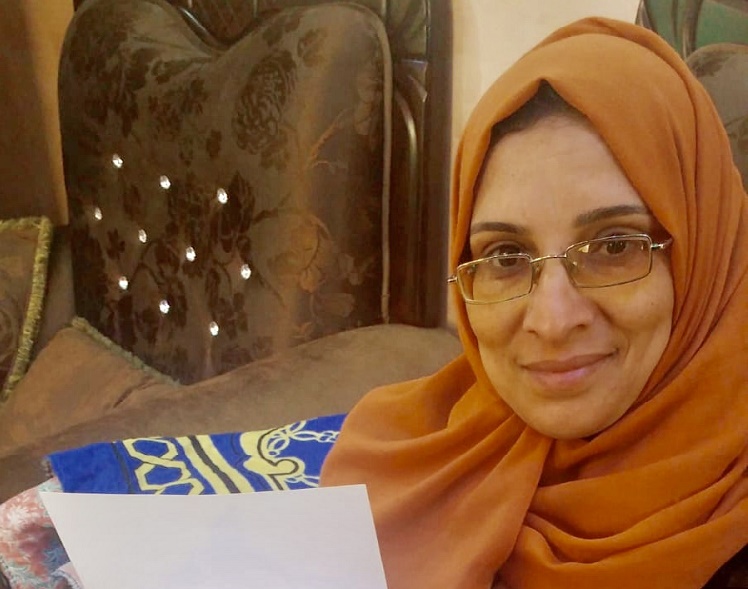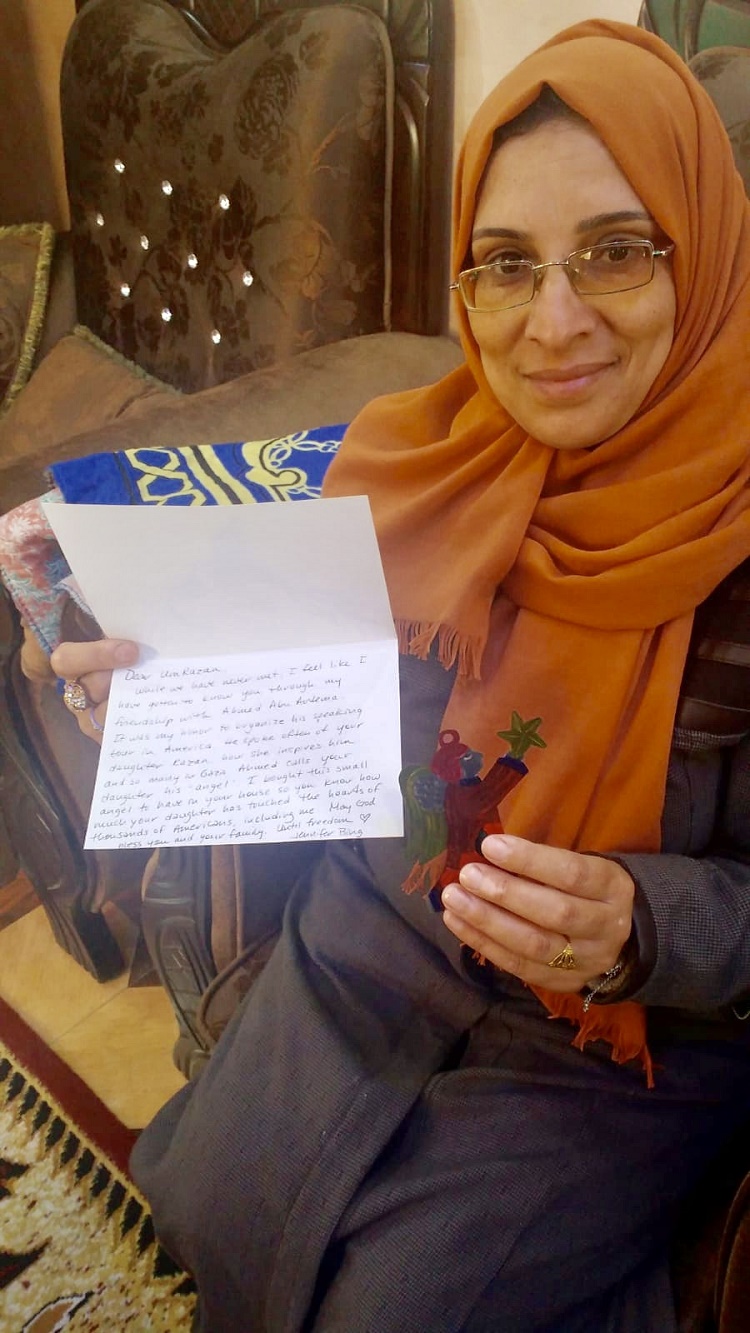
Photo of Sabreen Al Najjar by Ahmed Abu Artema Ahmed Abu Artema / AFSC
One of my favorite stories that Palestinian writer Ahmed Abu Artema told during his recent speaking tour in the U.S. was how he was influenced by the strength of women. Ahmed spoke about seeing women in Gaza risking curfews to bring food to neighbors and directly confronting Israeli soldiers during his youth. He talked about learning about the bravery of nonviolent resistance from Rachel Corrie, a U.S. volunteer in his childhood hometown of Rafah, who was killed by an Israeli army bulldozer while trying to protect a Palestinian family’s home.
And he talked about volunteer paramedic Razan Al Najjar.
Razan Al Najjar was a 20-year-old young woman who lived in the Gaza town of Khuzaa, not far from the boundary fence with Israel. The oldest of six children, her family could not afford to send her to college, so she trained as a medic at the Nasser hospital in Khan Younis. She began volunteering to help evacuate the injured shot by the Israeli army at the beginning of the Great March of Return until her death.
On June 1, 2018, Razan was shot dead by Israeli soldiers as she and other medics, walking with their hands in the air and dressed in white vests, approached the boundary fence to treat a wounded protester. Razan has become an important symbol of the fearless Palestinian first responders to the ongoing lethal force used by Israel against protesters at the Great March of Return.
Ahmed got to know more about Razan by visiting her mother, Sabreen Juma’a Al Najjar last summer. “Gaza: Between Fire and Sea,” a short documentary film by Aljazeera about the Gaza Great March of Return, captures the visit when Ahmed went to pay his respects to Razan’s mother. When I watched the documentary together with Ahmed on his speaking tour, Ahmed always said how powerful that visit was for him. He said Razan is “truly an angel” for her selfless service to others.
Sabreen Al Najjar wrote about her daughter on Palestinian Mother’s day in March of this year, pledging to continue the work of her young daughter. “Razan was a vibrant young girl, full of hope, and generous to all. She dreamed of returning to our home village, Salamah in Jaffa, from where we were forcibly expelled in 1948 - and she believed in the realization of an independent, sovereign state of Palestine. Razan was the buttress that supported our household, and a good model for her five brothers and sisters…. I see Razan in the eyes of every young Palestinian… Razan is now gone, but her ideas and spirit live on.”
I suspect many in Ahmed’s audiences, like me, have told our friends about the experiences Ahmed shared about the popular movement in Gaza and the people like Razan who have given their lives in the struggle to be free. In March I wrote an article about an exchange I had with a shopkeeper in New Mexico who helped me find things in her fair trade shop to send as gifts with Ahmed when he returned to Gaza. Among the small items I bought was a tin angel made in Mexico.
At the end of the speaking tour, Ahmed’s suitcase was packed with books given to him from friends he met in the U.S. and small gifts for his family. Luckily, he managed to include a note from me to Razan’s mother that included the small angel I purchased in remembrance of Razan. (For those who are unaware, regular mail service is not available from the U.S. to Gaza.)
My note to Sabreen Al Najjar said:
Dear Um Razan, While we have never met, I feel like I have gotten to know you through my friendship with Ahmed Abu Artema. It was my honor to organize his speaking tour in America. He spoke often of your daughter Razan, how she inspires him and many in Gaza. Ahmed calls your daughter his “angel.” I bought this small angel to have in your house so you know how much your daughter has touched the hearts of thousands of Americans, including me. May God bless you and your family. Until freedom, Jennifer Bing
I wasn’t sure that my letter would actually reach Razan’s mother. Ahmed’s trip home would be challenging due to border crossings and multiple baggage checks, and when he got home, I knew he would be busy greeting family and friends he had not seen in months. It was to my surprise that a few weeks ago I got a phone call from Ahmed.
“Jennifer, please look at a photo I am sending you.”

I looked into my phone and saw a picture of Razan’s mother holding my card and the angel. I began to cry.
“I am sitting with Um Razan and she would like to say thank you. I will translate,” Ahmed said as he spoke to her in the phone. “Your kindness means the world to her.”
Somehow I managed through my tears to tell Um Razan that I too was a mother of a young woman and know the great bond and love that can exist between mothers and daughters. “There are no words I can say to express my grief,” I said. “I’m sorry that the angel is only a small token that I have sent with Ahmed.”
“The angel will be a gift I will treasure forever,” Um Razan said through Ahmed’s translation. “I hope one day we will meet when our country is free.”
As we approach Mother’s Day this year, I will be thinking of all the angels and their mothers in Gaza who mourn them. May their strength to resist and raise children in hopes of a dignified life be supported by our small acts of solidarity.